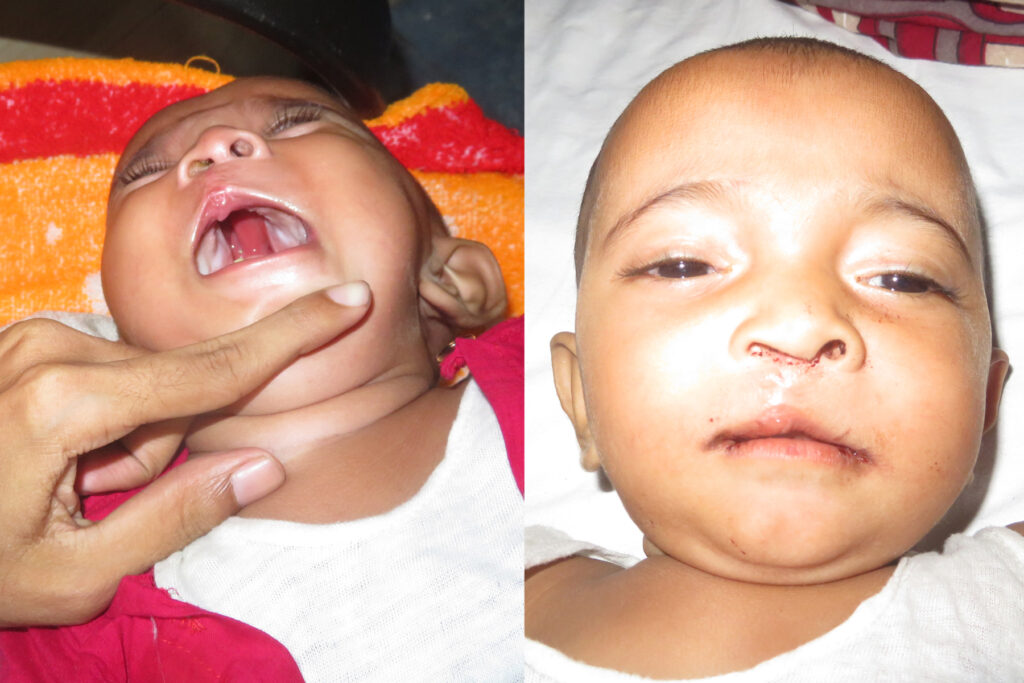Causes Cleft Lip & Palate

We don’t know exactly why a baby develops cleft lip or cleft palate, but believe that it may be a combination of genetic (inherited) and environmental factors (like medications or vitamin deficiencies). Both mothers and fathers can pass on a gene or genes that cause cleft palate or cleft lip. A mother’s exposure to certain chemicals may also cause clefting. Not getting the right nutrients may increase a child’s risk of being born with a cleft ? for example, if the mother has a lack of folic acid in her diet. Finally, smoking cigarettes and use of drugs and alcohol during pregnancy increases the risk that a baby will be born with birth defects. Research has shown that moms who binge drink (drinking five or more drinks on one occasion) during the first weeks of pregnancy have a higher risk of having a baby with a facial birth defect such as cleft lip or cleft palate.
One of the first problems a baby with cleft palate might have is difficulty breathing or eating. Cleft palate usually makes breastfeeding difficult because the infant has difficulty sucking properly. The palate prevents food and liquid from going up the nose when swallowing. To prevent liquid from passing into the nose of a newborn baby with a cleft palate, a bottle with a special nipple may be used to feed the baby breast milk or formula. Kids born with cleft palate may also have frequent ear infections. That’s because air and fluid can’t pass normally through the Eustachian tubes, the tubes that connect the throat with the middle ear. This means fluid and germs can become trapped behind the eardrums and cause infection. Some people with cleft palate may have had an operation to put tubes in their ears to help the fluid drain properly. In some cases, people who have cleft palates may have hearing loss because of repeated infections and fluid behind the eardrums. Dental problems, such as cavities and missing or malformed teeth, also are common in people born with cleft lip and palate. Speaking clearly can be challenging for kids with a cleft palate. Sometimes the soft palate doesn’t move well enough to prevent air from leaking out through the nose during speech. This can cause their voices to sound as if they are speaking through their nose. If the teeth don’t line up properly, a person may not be able to pronounce certain sounds. In most children with clefts there are no other physical or learning problems. For some people, cleft palate and cleft lip may be associated with other birth defects, such as heart defects, or other physical problems, such as growth disorders and muscle weakness and some learning difficulty.
